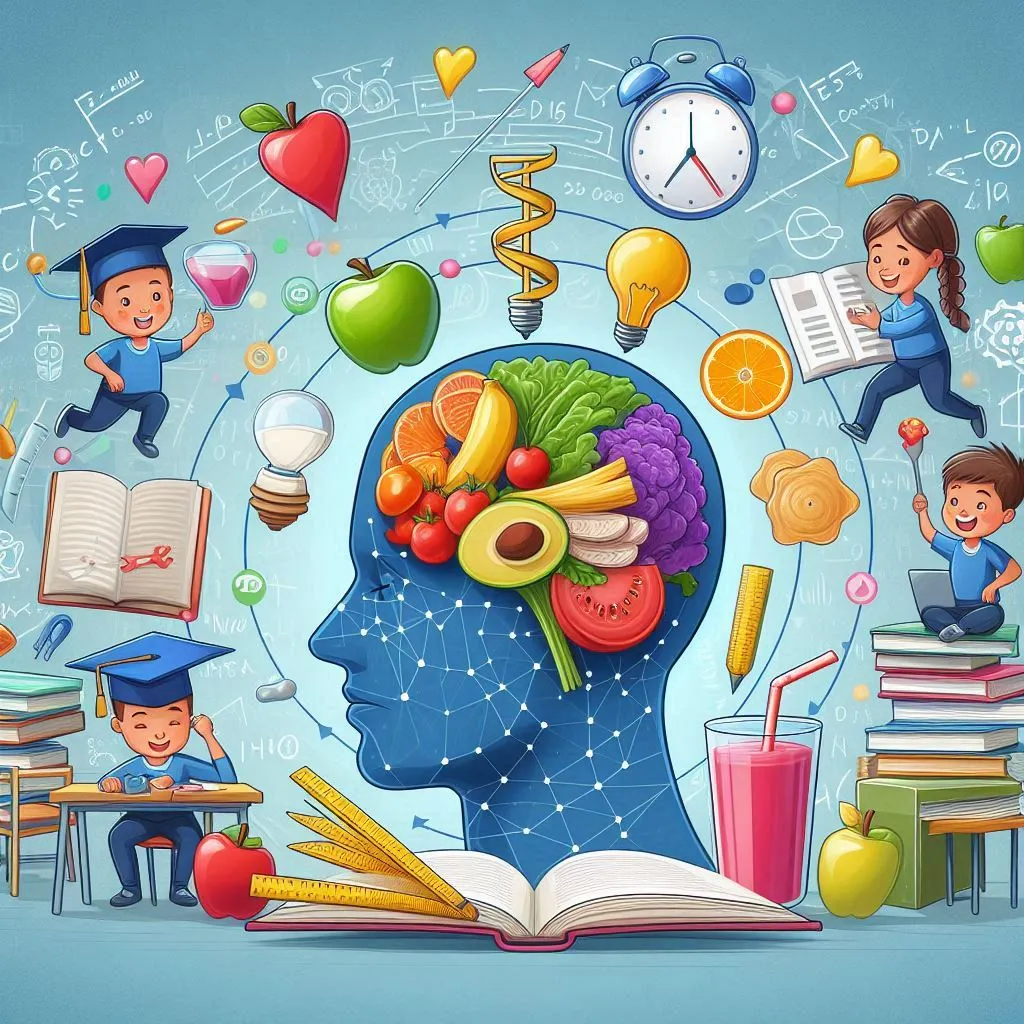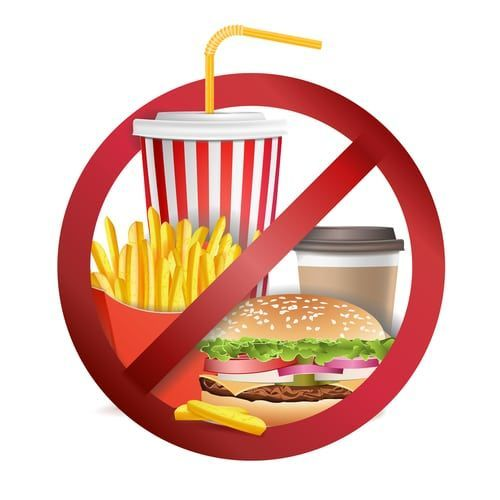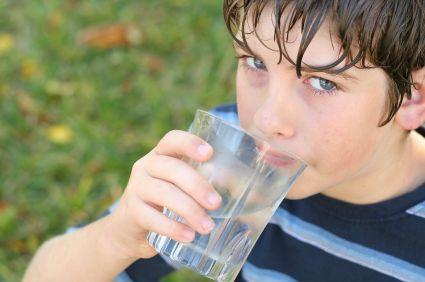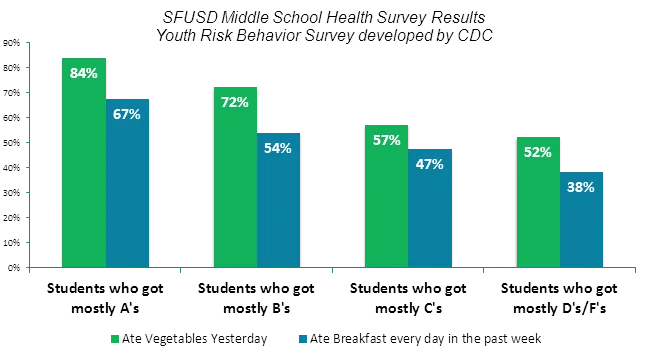
Give a man a fish and you feed him for a day; teach a man to fish and you feed him for a lifetime.
– Maimonides
Update: This article was last updated on 9th September 2024 to reflect the accuracy and up-to-date information on the page.
The majority of parents are fussy about what their children eat. They make sure that the food is wholesome. However, they can be ignorant of the link between good eating habits and academic achievement. For instance, we frequently say that breakfast is a crucial meal of the day. Why do we say that? Because it is necessary for people’s cognition, learning, and acquiring skills. It supplies them with micronutrients like vitamins, glucose, etc., which play an important role in brain health and the quality of its power and functions, reports a National Library of Medicine research article.
In this blog, we will discuss how nutrition impacts students’ learning potential and academic performance.
Improve Nutrition to Increase Brain Function
The table explains foods and their potential benefits in supporting brain health and cognitive function.
| Food | Benefits |
|---|---|
| Leafy greens | Rich in brain-healthy nutrients like vitamin K, lutein, folate, and beta carotene. May help slow cognitive decline. |
| Fatty fish | Abundant sources of omega-3 fatty acids, linked to lower beta-amyloid levels. Eat at least twice a week, choose low-mercury varieties. |
| Berries | Flavonoids in berries improve memory. Regular consumption may delay memory decline. |
| Tea and coffee | Caffeine may improve mental function and help solidify new memories. |
| Walnuts | High in alpha-linolenic acid (ALA), linked to improved cognitive test scores. |
1. The Foundation of Learning: Proper Nutrition

Eating right and following a daily routine habit means more than just having a mix of foods. It means getting all the important things our body and brain need to work well. For instance, not having enough iron can make it hard for the brain to work well. Missing out on certain vitamins and minerals like thiamine, vitamin E, vitamin B, iodine, and zinc can also make it tough to concentrate and think clearly. On the other hand, eating foods with amino acids and carbohydrates can actually make thinking and understanding better. Many studies have found that when kids eat better, they can be smarter and do better in school. So, eating the right kind of food can make a big difference in how well kids can think and learn.
2. The Brain-Food Connection
Our brain is like a busy worker, always needing the right fuel to do their best job. Just like how we need good food to feel strong and healthy, our brain needs special nutrients too. Things like Omega-3 fatty acids, antioxidants, and certain vitamins help our brains think better, remember things, and concentrate. It’s like giving our brain superpowers to learn! According to a study comparing “traditional” diets like the Mediterranean Diet and the traditional Japanese Diet to a typical “Western” diet, people who follow a traditional diet had a 25% to 35% lower chance of developing depression. Mediterranean-style diets include healthy fats and healthy carbs.
3. The impact Breakfast on Academic Performance
You know how breakfast is called the most important meal of the day? Well, it’s for a good reason! When students have a healthy breakfast, they can pay better attention, remember things more easily, and solve problems more effectively. But if they skip breakfast, it’s like starting the day with one hand tied behind their backs when it comes to learning.
The NCBI study found that regular breakfast consumption, which includes milk, fruits, and vegetables, can, to varying degrees, enhance academic performance.
1. Sugar, Junk Food, and Their Effects on Learning

Sometimes, we find yummy but not-so-healthy snacks around. They are tempting but do you know too much sugary and processed food can make it harder for students to think clearly. Eating fast food often is linked to conditions like atopy, constipation, addiction, poor academic performance, low energy, melancholy, sleep difficulties, and hyperactivity, reports News-Medical.net.
2. The Role of Hydration in Cognitive Function

NCBI reports that a large body of research have found that dehydration can harm cognitive ability. Children’s learning ability improves if they have better access to drinking water at home and in the classroom. It enhances their attention, concentration, and short-term memory. So, water is like a secret weapon for our brains. When we don’t drink enough, it’s like our brains are trying to think through a fog. Staying hydrated helps us focus, stay alert, and remember things better. It’s like giving our brains a refreshing boost to learn at their best.
3. The Link Between Nutrition, Behavior, and Classroom Environment
Food doesn’t just affect how smart we are, but also how we act and feel. When we eat good stuff, we’re more likely to be calm and happy. This makes our classrooms better places to learn. It’s like setting up a cozy and quiet space for our brains to do their best work.
4. Overcoming Socioeconomic Barriers to Nutritious Eating
Sometimes, it’s difficult for everyone to get the healthy food they need. It will surprise you that 45 million children suffer from severe malnutrition every year. Therefore, it is important to find ways to mitigate socioeconomic barriers to nutritious eating. It’s like giving everyone a fair chance to be super learners.
5. Implementing Nutrition Education Programs
Teaching students about healthy eating is like giving them a powerful tool for life. When they know what’s good for them, they can make smart choices. Schools can make learning about nutrition fun, like a big adventure! It’s like giving students a treasure map to good health and success in school.
4. Empowering Students, Parents, and Communities

Making sure everyone eats healthy is a team effort! Families, teachers, and communities all play a big part. When everyone works together, it’s like a big group of superheroes joining forces. They help students grow up strong, smart, and ready to take on the world!
Conclusion
Eating good food is really important for students. It can help them do well in school. When we understand how important it is and do things to make sure students eat well, they can be really successful in school. This will help them succeed in life. If we all work together, we can make a positive impact on students all over the world.
Looking for a comprehensive parenting guide to ensure you are on the right track? Explore a wealth of parenting wisdom and educational insights in Moonpreneur’s blogs. Additionally, you can join our programs that nurture the next generation of innovators. Book a free trial now!


























Why is nutrition important in learning achievement and performance of the learners?
Students who eat well excel in participation, behavior, attendance, and task completion compared to those with poor dietary habits.
How does nutrition affect my son’s language development?
Good nutrition has beneficial effects on learning and concentration. This can subsequently have an impact on early language development.